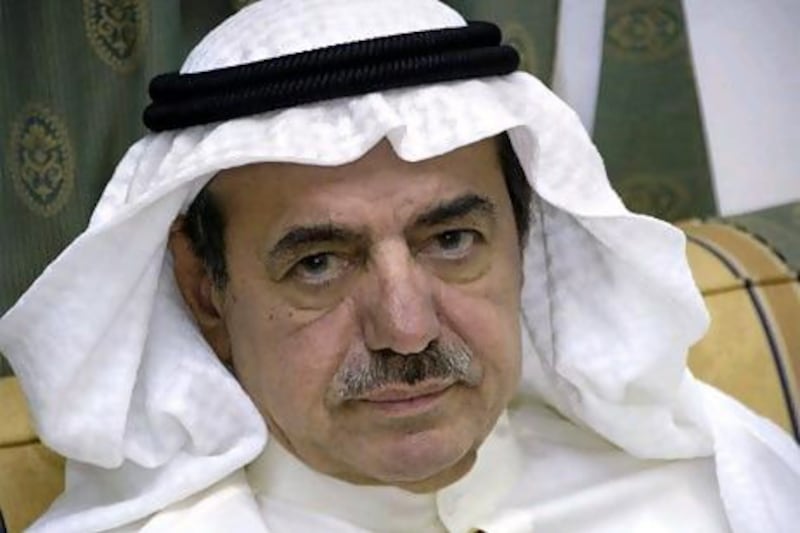Shares in Zain fell yesterday after the death of Nasser al Kharafi, the billionaire investor, leaving the future ownership of the Kuwaiti telecommunications company up in the air.
The Kharafi Group chairman, who was ranked by Forbes as the world's 77th richest man, with an estimated family fortune of US$10.4 billion (Dh38.19bn), was a key proponent of a sale in Zain to its UAE rival Etisalat.
Mr al Kharafi was regarded as a pillar of the Kuwaiti economy, with ownership of, or stakes in, businesses such as the National Bank of Kuwait, Egypt Kuwait Holding and National Investments Company.
Adel al Wugayan, the secretary general of Kuwait's supreme council for planning and development, a government authority that formulated the country's national development plan, said Mr al Kharafi managed "a huge portfolio of investment" and his death was "painful for everybody".
"What happens next depends on who's going to be succeeding him in that position," Mr al Wugayan said, adding, "I'm sure that the al Kharafi family has a lot of bright brains."
Zain closed down by 3.33 per cent at 1.16 dinars, while shares in other companies connected with Mr al Kharafi were also hit after his unexpected death on Saturday evening.
Analysts point to possible asset sales by the Kharafi Group amid speculation in the market over possible successors at the group.
Etisalat last month abandoned a $12bn bid for control of Zain, citing disagreement among board members and regional unrest.
Some analysts said the deal could be back on the table after the surprise appointment of another Kharafi Group executive to the Zain board last week. Progress in Zain's deal to sell its Saudi assets, a precondition of an Etisalat buyout, was also seen as a favourable sign.
But while a disposal of Zain assets could be high on the agenda, it depends on whether Mr al Kharafi's successors can rally shareholder approval, analysts said.
Naser al Nafisi, the general manager of the Al Joman Center for Economic Consultancy in Kuwait, told Reuters the Kharafi Group had direct and indirect liabilities likely to total at least $5bn.
"We could see some assets being sold to pay down debt," said Irfan Ellam, a telecoms analyst with Al Mal Capital.
"If [Mr al] Kharafi hadn't passed away Etisalat may well have returned to the table if the Zain [Saudi] sale completed."
Mr Ellam said the Kharafi Group, through its Al Khair unit, had recently boosted its shareholding in Zain, a move confirmed by another executive with knowledge of the situation who wished to remain anonymous.
"Al Khair last week increased its stake in Zain from 12 per cent to 16 per cent. It's interesting that happened just before the shareholder meeting," Mr Ellam said.
But while that brings Zain closer to the 46 per cent shareholder approval it requires for an Etisalat takeover, the issue of the group's successor is still key.
"The question at the moment is who will take over the day-to-day running of the group and whether or not they will have the ability to put together a shareholder group representing 46 per cent of the equity," Mr Ellam said.
Brokers in Kuwait said traders were "concerned" as they waited for news from the al Kharafi family concerning the future of major deals.
Mohammed Ashkanani, a senior trading manager for KFIC Financial Brokerage, said the Kharafi Group had liabilities with many banks in the region and needed the Etisalat deal to go through.
"We want to know if they want to carry on with this deal or not," Mr Ashkanani said.
Fahad al Sheraian, the general manager of Union Securities Brokerage, said many Kuwaiti businesses were linked to the Kharafi Group.
Mr al Sheraian said Kuwaiti investors believed two of Mr al Kharafi's sons - Bader, who is the managing director of Gulf Cable and Electrical Industries, and Marzouk, the deputy president of the Kharafi Group - were the main contenders to take their father's position.
"I think his son, Bader, is most like his father," Mr al Sheraian said. "He's younger than Marzouk but he looks like he is a very clever and intelligent man."
JCalderwood@thenational.ae





